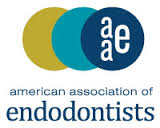Typically, a full-mouth reconstruction, or rehabilitation, is required if a person’s jaw was injured or fractured due to a sports, car, or other type of accident. However, there are other reasons a person may require one, such as severely worn dentition due to long-term acid reflux or erosion, gum disease, or rampant decay, all which may lead to the need for multiple restorations. When all the teeth in the mouth require treatment, as well as, perhaps, gum tissue and possibly bone structure, to restore function and esthetics, it is referred to as a full-mouth reconstruction.
Other Reasons for a Full-Mouth Rehab
People born with dental related conditions such as ectodermal dysplasia’s (genetic disorders affecting the function or development of teeth, nails, hair, and sweat glands), dentinogenesis imperfecta (a group of hereditary conditions characterized by the abnormal formation of tooth dentin), ameliogenesis imperfecta (unusually small, discolored, pitted or grooved teeth prone to rapid wear and breakage) may require full-mouth rehabilitation. Other people that, for whatever reason, suffer from numerous teeth with large fillings that are failing; numerous teeth exhibiting decay; cracked, fractured, or broken teeth; badly worn teeth; and/or multiple missing teeth, can also benefit from a full-mouth reconstruction to rebuild or replace all of their teeth in an effort to improve the function, esthetics, and health of their oral cavity.
What It May Include
A full-mouth rehabilitation can include the replacement of missing structures of the cavity including teeth, bone, and oral tissue with the use of:
- Prosthetics
- Orthodontics
- Inlays
- Onlays
- Crowns
- Bridges
- Veneers
- Implants
- Dentures
If you or someone you know suffers from poor oral/dental health for any of the reasons above, contact Modern Dentistry of Shrewsbury and inquire about full-mouth restorations.










